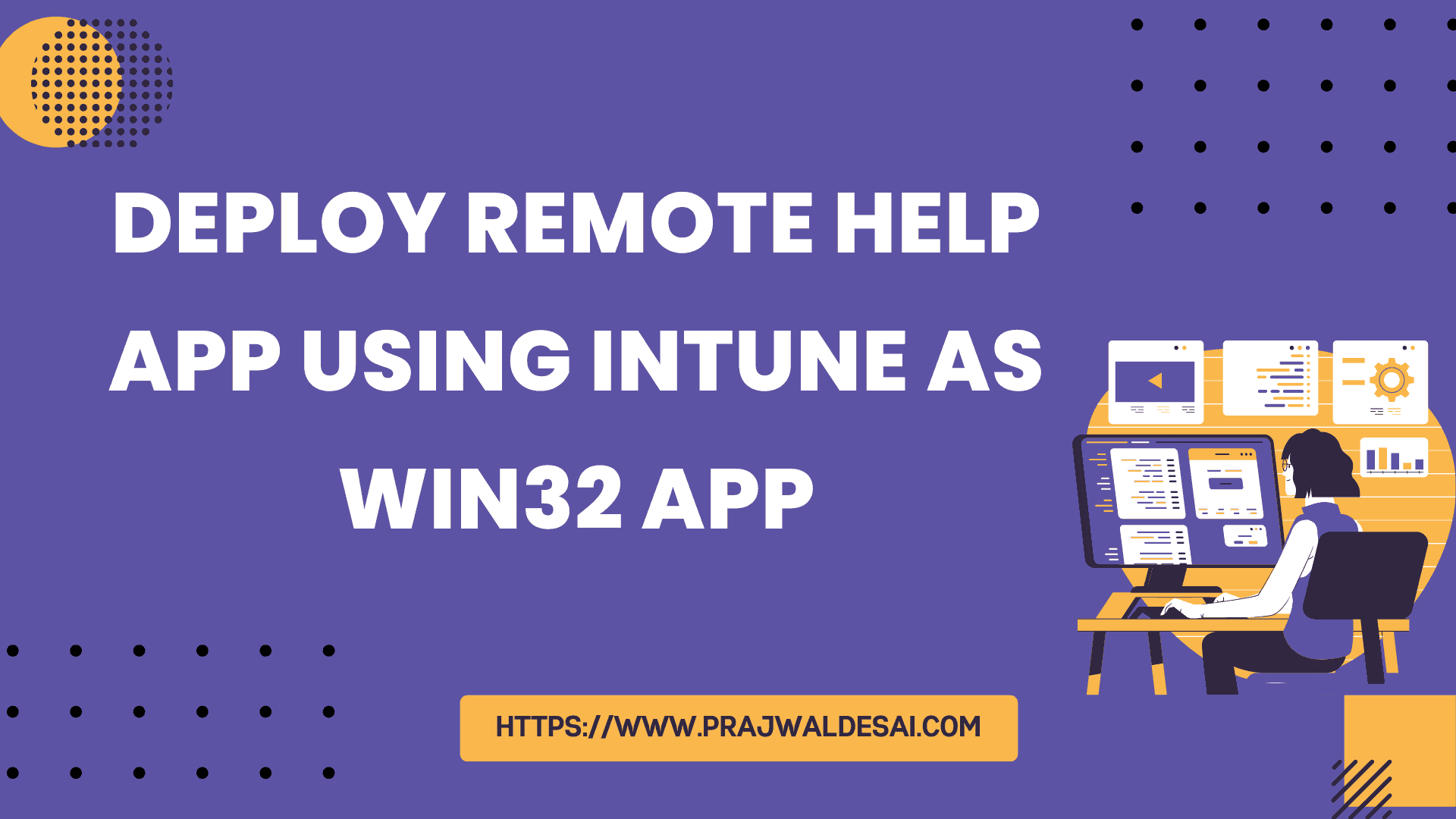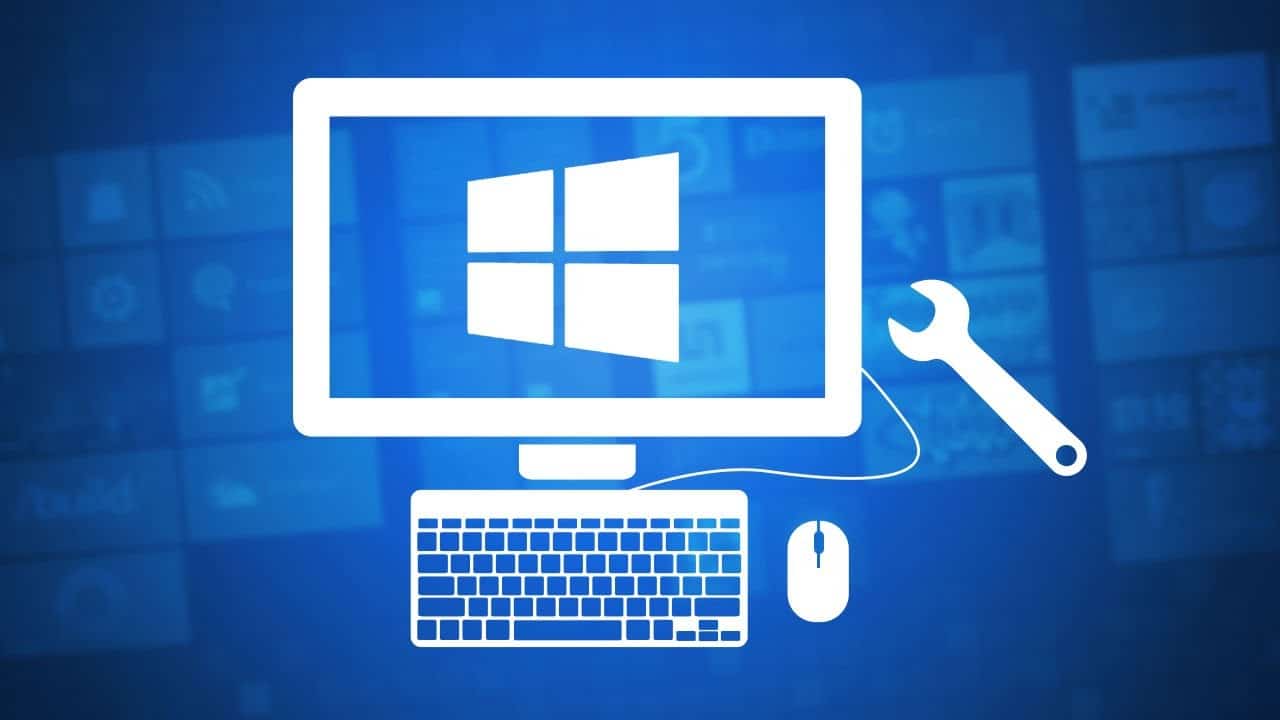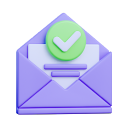In this article, I will show you how to deploy Remote Help app using Intune as a Win32 app. Intune allows you to add the Remote Help Win32 app, create a detection rule to find devices without Remote Help installed, and deploy the app to those devices.
Remote Help is a paid add-on that works with Intune, and lets your front-line employees get help remotely when they need it. With the Intune Remote Help Win32 app, your support staff can connect to the user’s device from afar. Once the connection is successful, a secure session is established between the connected devices. If you are new to the concept of remote help in Intune, refer to the following guide on how to enable and configure Remote Help in Intune.
Remote Help is available as a download from Microsoft and must be installed on each device before that device can be used to participate in a Remote Help session. Using Intune, you can distribute Remote Help as a Win32 app for installation on a variety of Windows devices.
Deploy Remote Help App using Intune as Win32 App
Let’s go through the steps to deploy the Remote Help app using Intune. First, we will add the app as a Windows win32 app, configure the app information, and define a detection rule to identify devices that don’t have Remote Help installed. Finally, we will perform remote help deployment using Intune.
Step 1: Download Remote Help App for Intune
You can download the latest version of the Intune Remote Help app directly from Microsoft at aka.ms/downloadremotehelp. The remote help app is an executable installer, and the latest version that you get is 4.0.1.13. Microsoft keeps updating this app, and that’s when the version number is incremented.
When you download the remote help app, the installer name is something like this: remotehelpinstaller_810fe4d30e51d229065f557f3958e20bc5df4ca0. For deployment purposes, you can rename the app to remotehelpinstaller.
Along with the remote help app, you may also download the logo for the app. We will assign this logo to the app in the Intune.

Step 2: Repackage remotehelpinstaller.exe as a .intunewin file
Before you can add Remote Help as a Win32 app, you must repackage remotehelpinstaller.exe as a .intunewin file, which is a Win32 app file you can deploy with Intune. We will use the Microsoft Win32 Content Prep Tool which converts application installation files into the.intunewin format.
I’m going to assume that you’ve already downloaded the Win32 content prep tool. Launch the command prompt on your computer and run IntuneWinAppUtil.exe. Before it can make a Remote Help Win32 app, the tool needs some basic information.
- Specify the source folder: The folder where the remote help installer executable is located.
- Specify the setup file: Enter the file name as remotehelpinstaller.exe.
- Provide the output folder location: Specify the folder where you want the Remote Help Win32 app to be created.
- Do you want to specify catalog folder: Type N
The tool converts the remote help application installation files into the .intunewin format. The tool also detects some of the attributes that Intune requires to determine the application’s installation state.

Once the tool has completed its operation, we get the remotehelpinstaller.intunewin file. This is the Remote Help Win32 app that will be used to create a Win32 app in the Microsoft Endpoint Manager admin center.

Step 3: Add Remote Help Win32 App into Intune
In this step, we will create a new app in Intune and add remote help Win32 app:
- Sign in to the Microsoft Endpoint Manager admin center.
- Click Apps and select All Apps.
- Click + Add to create a new app in Intune.

On the Select app type page, click the drop-down for App type and from the list of options, select Windows app (Win32).

On the App information page, locate the remotehelpinstaller.intunewin file you’ve previously prepared, and then select OK. The following details are populated from the remote help Win32 app.
Name: remotehelpinstaller.exe
Platform: Windows
Size: 5.16 MiB
MAM Enabled: No

Step 4: Configure Remote Help App Information
After you have uploaded the remote help win32 app to Intune, the next step is to configure the app information. This involves providing basic details about the app such as Name, Publisher, Description, App Logo, etc. The details that you specify will be presented to users when they launch company portal app and view the application.
In addition to providing basic details about the app, you can choose to display the app as featured app in company portal for users.

On the App information page, scroll down to find the logo option. Here you can specify a logo for the Remote Help app. The icon will be visible along with Remote Help app in company portal. Click Next to continue.

Step 5: Remote Help Win32 App Install and Uninstall Command
On the Program page, you need to specify the install and uninstall command for remote help app. Configure the following options:
- For Install command line, specify remotehelpinstaller.exe /quiet acceptTerms=1
- For Uninstall command line, specify remotehelpinstaller.exe /uninstall /quiet acceptTerms=1
To disable automatic updates, use the install command remotehelpinstaller.exe /quiet acceptTerms=1 enableAutoUpdates=0 as part of the install command.
NOTE: For users that opted out of automatic updates, when an update to Remote Help is required, users are prompted to install that version of Remote Help when the app opens. You can use the same process to download and install Remote Help to install an updated version. There’s no need to uninstall the previous version before installing the updated version.
Select the Install behavior as system or user depending on your requirements. Select the device restart behavior as App install may force a device restart. In addition to the default return codes added by Intune, you may add a new return code to determine the post installation behavior. Click Next.

Step 6: Configure the Remote Help App Requirements
The Requirements page allow you to specify the requirements that devices must meet before the app is installed. You should have a clear idea about the devices that are managed by Intune in your setup and their architecture and version before you configure the requirements.
I have configured the following requirements for remote help app deployment:
- Operating system architecture: 64-bit
- Minimum operating system: Windows 10 21H1
The remaining requirements are optional, and you may configure them if required. Click Next.

Step 7: Add Detection Rule for Remote Help App
In this section, we will add the detection rule for remote help app. Be it Configuration Manager or Intune, this is essential for any app that you deploy.
Configure the following options to detect the presence of remote help app on Windows devices:
- Rule type: File
- Path: C:\Program Files\Remote Help
- File or folder: RemoteHelp.exe
- Detection method: String (version)
- Operator: Greater than or equal to
- Value: Specify the version of Remote Help you are deploying.
- Leave Associated with a 32-bit app on 64-bit clients set to No.

Step 8: Configure the Dependencies and Supersedence for Deployment
Intune allows you to configure the dependencies for Win32 apps. The dependencies are the applications that must be installed before this application can be installed. Remote help doesn’t rely on any other software for it to work, so click Next.

On the Supersedence page, click Next.

Step 9: Assign Remote Help Win32 App
In this step, you’ll have to assign the remote help app to your device or user groups. You can either assign the app as Required or Available for enrolled devices. Select an applicable device group or groups that should install the Remote Help app. Click Next.

On the Review+Create page, you can find the summary of all the configuration that you have performed for remote help app. If everything looks good, click Create.

The Remote Help Win32 app is now created in Intune, and we can see some notifications for that. Keep an eye on the notifications as these are really important. Look for the final notification which says, “Remote Help Installer – Intune” upload finished. You should find the Remote Help app listed under All Apps in the Intune console.

Step 10: Test Remote Help Deployment using Intune
In this step, we will log in to Windows computers and check if the remote help app installs correctly. After you deploy remote help app using Intune, you must wait for the deployment to apply to the targeted groups, and once the devices check in with the Intune service, they will receive the application. You can also force sync Intune policies on your computers in case you don’t find the Remote Help app listed in the company portal.
Launch the company portal on the computer. The Remote Help Installer app should be shown under Recently published apps. Select the Remote Help application and click Install. The application is now downloaded on to the client computer.

After few minutes, we see the remote help application is successfully installed on the computer. The company portal shows the application status as Installed which confirms successful remote help deployment using Intune.














Where does remotehelp installation log files go when deploying app for devices in system context?
As on manual installation they are at app data\temp folder of the user.
we need to gather those for trouble shooting with the app.